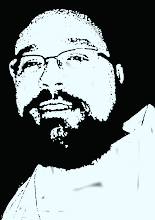of bitter weeping!
Rachel mourns her children,
she refuses to be consoled
because her children are no more."

-- MindBrainBody Project
Sin with Fr. Bryan D. Ouellette, Ph.D. from Universal Church of Autogenes on Vimeo.
Father Bryan works through the theological difficulties involved with the subject and usual definition of sin. Can there be a Gnostic approach to sin? Is sin obsolete in a world that has come to embrace imperfection as part of ordinary human experience? In this video, you will learn more about this very misunderstood concept.
When you can find God in a beautiful sunset, you haven't yet arrived.
When you can find God in all living things, wisdom is still far off.
When you can find God in the deepest recesses of your heart, Gnosis is still eluding you.
When you can find God in not just the extraordinary, but the ordinary, you still have more steps to take.
But when you can find God in the most vile, repulsive, disgusting, reprehensible thing, then your enlightenment may just be right around the corner.
Take no glory in it, for it is fitting that there should be no rewards for seeing things as they actually are. Such an action is not a privilege, but our duty. Let us not be heros unto ourselves, but rather let us commit to the work we were born to accomplish.
Fr. Bryan
The Historical Jesus with Fr. Bryan D. Ouellette, Ph.D. from Universal Church of Autogenes on Vimeo.
Fr. Bryan speaks about the significance of the Historical Jesus within the framework of religious practice and salvation. Was the historical Jesus important? Did his historical actions matter or is the Gospel message a function of archetypal reality?
Basic Soteriology with Fr. Bryan D. Ouellette, Ph.D. from Universal Church of Autogenes on Vimeo.
Fr. Bryan discusses a Gnostic approach to the doctrine of Christian salvation. Is salvation necessary? It is important? Is it even compatible with the Gnostic world-view? Find out!



Apostolic Succession with Fr. Bryan D. Ouellette, Ph.D. from Universal Church of Autogenes on Vimeo.
Father Bryan expresses his views on the importance of Apostolic Succession and how it has impacted his priesthood and ministry.
Practical Gnosticism with Fr. Bryan D. Ouellette, Ph.D. from Universal Church of Autogenes on Vimeo.
Fr. Bryan discusses the relevance of Gnosticism within the confines of the conventional Christian Churches.
Gnosis and Enlightenment from Universal Church of Autogenes on Vimeo.
Fr. Bryan D. Ouellette, Ph.D. offers four rudimentary axioms for the “attainment” of Gnosis.
About Heresy with Fr. Bryan D. Ouellette, Ph.D. from Universal Church of Autogenes on Vimeo.
Father Bryan talks about the issue of heresy in the Christian Church and how to deal with it as a Gnostic.
The Ordination of Reverend Bryan D. Ouellette, Ph.D. to the priesthood of the Russian Orthodox Tradition. from Universal Church of Autogenes on Vimeo.
Dr. Bryan Ouellette is ordained priest in the Universal Church of Autogenes and is officially elevated to Abbot of the Holy Monastic Order En Deus. Later he celebrates the Liturgy of St. John Chrysostom.
The Eucharist with Rev. Bryan D. Ouellette, Ph.D. from Universal Church of Autogenes on Vimeo.
Dr. Bryan Ouellette explains the position of the Christian School of the Universal Church of Autogenes concerning the Holy Sacrament of Eucharist.
My Journey with Rev. Bryan D. Ouellette, Ph.D. from Universal Church of Autogenes on Vimeo.
Reverend Abbot Bryan D. Ouellette, Ph.D. introduces the blog of the Christian School of the Universal Church of Autogenes with a short description of his own spiritual journey that led him to the priesthood.


The Holy Imperial Russian Orthodox Church is an autocephalous reestablishment of the true Imperial Church of Rusland that existed before the fall of the Russian Tsars in 1917. Based on more than 1,000 years of tradition, our church wishes to reawaken the image of Russian Christianity founded upon the inspirations of Tsar Peter the Great, whose current heir, Mikhail Ivan Freyovich Yngling-Romanov {Tsar Peter Alexander Mikhailovich Romanov}, is the first to appoint a Patriarch to the Imperial Church since the 18th Century.